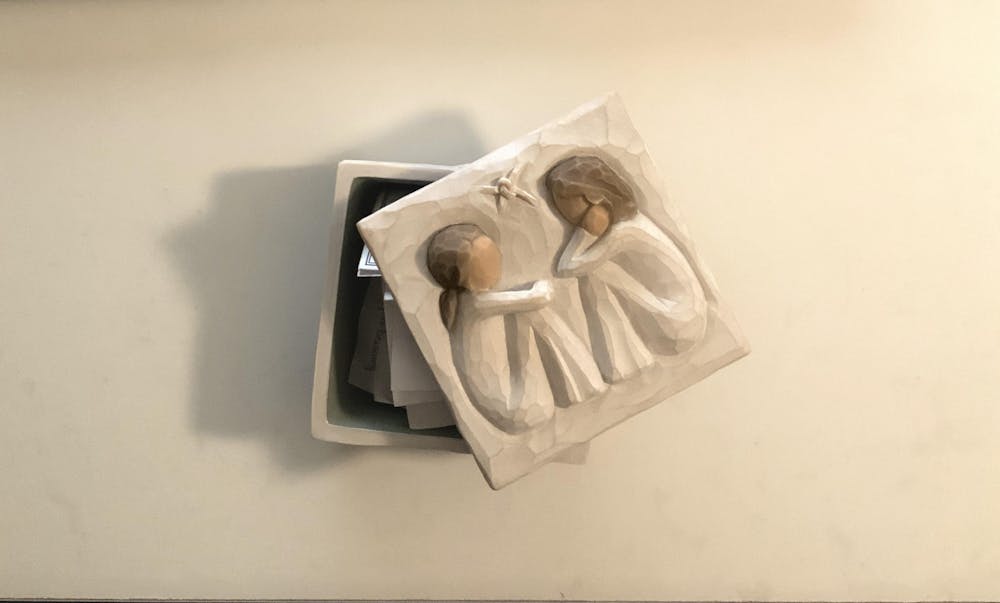
“What doesn’t kill you makes you stronger” is a well-known cliché. Though Nietzsche was a little more eloquent in coining the phrase, this is the version that’s ingrained in our minds, thanks to Etsy’s wide array of T-shirts and pillowcases sporting it and Kelly Clarkson’s 2011 hit song. So it’s no secret in 2020 that failure is an opportunity to learn as opposed to something necessarily negative. But I’ll be the first to admit that when I’m down, I don’t want to hear that.
It’s often said that things are easier said than done, and bouncing back from a setback is no exception. Doing so takes patience and a very specific mindset, and there is no denying that the first few big failures or letdowns will bring you down substantially no matter what you do. I’ve been feeling quite mentally and emotionally drained lately, and so I thought it would be helpful (for myself and anyone else who might be going through something that isn’t ideal right now) to recap some of the ways I like to pick myself up when I’m not feeling my best.
Before I delve into what I consider paths to “solutions” or “pick-me-ups,“ I should mention that I always take time to sit in that negative emotion first. Sadness, confusion and pain aren’t bad; it’s important to try and get comfortable with discomfort. I personally can’t move past things without feeling the full extent of the hurt or sadness that the situation caused, because without taking that step, I haven’t fully understood what I’m dealing with.
After this, the first thing I do is actively extract the things I have learnt from the experience. I will literally get a pen and paper (I never do this digitally) and write down a bullet point list of things I have learned about myself in an “action, reaction, lesson” format. For example: I hurt a friend, I distanced myself from them because I was afraid to tell them how I was feeling, I learned that honesty is the best solution and that it will bring clarity to most situations.
I know this might sound ridiculous or a little too methodical, but it’s truly cathartic, and it gives me a starting point to get it all out. I then fold that piece of paper a couple of times label the top of it with something that, in the future, will let me know what it refers to if I want to look back; and put it in a safe place. (I put them in a little box, but even a Ziploc bag will do.)
The next step for me is to reflect and see if there’s anything I can do to either remedy the situation, start over or find another way to achieve the same goal. I have yet to come across a problem or setback where none of those things are possible.
Some examples that come to mind are failing a test, getting rejected from the final round of interviews for an internship or even going through a breakup.
In all three of those cases, there are ways to achieve the same goal (talk to your professor, try and make it up on the next test), start over (ask for feedback and apply the next year or for similar positions at other companies) or remedy the situation (heal yourself and move on). This step is honestly one of my favorite parts and something I’ve learned to look forward to, because it allows me to be creative in finding solutions and has made me a generally more positive person. I also truly think that this is where I grow the most and build mental strength.
The last thing I do is thank myself and recognize that using failure in a productive way is not an easy task. I do this usually in the form of takeout and a movie, but also by sleeping in a little, making myself some extra special coffee or making a whole lot of sweet corn soup (replace this with whatever food comforts you the most).
This whole process takes a lot of energy, but also as I mentioned, this isn’t something that comes naturally (to me, at least). I’ve only really felt pleased with how I go through this process over the last year, and even then, I sometimes slip into the horrible ‘this pain will never end’ mindset, but the more I practice, the better it gets. This is all to say that now, more than ever, as we face the most unprecedented challenges, there is still an opportunity to find a silver lining.





